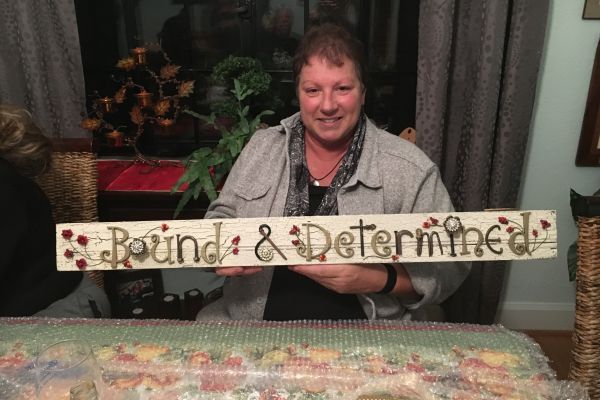Cancer treatment can be a difficult time for both patients and their caregivers. If you’re a caregiver, you know that it can be easy to neglect your own health while you’re providing excellent care for someone else. Exhaustion, eating poorly, persistent high stress levels or lack of sleep can wear you down.
It’s important to remember that if you get sick, you cannot provide the care that your loved one needs. If you have health concerns or family responsibilities of your own, it is even more important — and even harder — to take care of yourself. Here are a few tips for staying healthy, organizing the chaos and managing stress:
- Be kind to yourself. Do something for yourself each day, even if just for a few minutes.
- Be active. Even light exercise, such as walking, can improve your mood and reduce stress.
- Share your feelings with a supportive friend or fellow caregiver. Let them know you do not expect solutions; you just want a sympathetic ear. Join the Roswell Park online community or take part in a caregiver support group. (Visit the Resource Center for Patients and Families for information about support groups.)
- Take a little time for yourself. Rest, get together with friends, watch a movie, work on a hobby or do something else that makes you happy.
- Keep records of doctor’s visits (who, why, when), tests, procedures, medications, allergies, side effects and adverse reactions. Use a notebook or journal to keep track of everything and write down questions for your doctor. Stop by the Resource Center for a journal you can use.
- Make healthy food choices. Eat less salt, sugar, saturated fats and processed foods, and more whole grains, fruits and vegetables — and drink plenty of water. Paying attention to what you eat and drink is critical.
- Learn to accept offers of help and ask for help. Make a list of things you need help with so when people call to ask what they can do, you’ll have a list ready. People do want to help.
- Say “no” and stick to it. Be realistic about the time and energy you have left after caregiving. Do not overextend yourself.
- If you are a sole caregiver, talk with a social worker at Roswell Park about respite care programs. Call 716-845-8022.
- The Family Medical Leave Act (FMLA) is a federal program that allows workers to take up to 12 weeks of unpaid leave in order to care for a family member. For more information, visit the websites of the U.S. Department of Labor or the Caregiver Action Network.
- Learn about your loved one’s diagnosis and treatment so you’ll have a sense of what to expect and can become familiar with the medical terms used by your loved one’s care team.
- Stop by the Resource Center. We have many resources that will help.
Understanding Your Feelings
You will experience many different emotions as you take care of your loved one. Sometimes you’ll feel good about how you are helping, and other times you might feel resentful or scared. There is no right or wrong way for you to feel. This is a process that will continue to change as you and your loved one continue this cancer journey together.
The first step to understanding your feelings is to know that they’re normal. Give yourself some time to think through them. You may feel:
Sad. If the sadness feels overwhelming, contact Roswell Park’s Social Work Department and ask for help. Call 716-845-8022.
Angry. Anger often grows out of fear or stress. Take a minute to examine your anger and what fears may lie underneath.
A Sense of Loss. You may be feeling a loss of control. You feel you cannot control the cancer and you cannot control the outcome of the treatment. You simply want to fix it and bring your life back to normal. Let yourself grieve these losses and then keep moving forward.
Guilty. You may feel guilty that you cannot do enough. You may even feel guilty that you are healthy and your loved one is not. Always remember that doing your best is enough. Your loved one will appreciate all you do.
Lonely. It's hard for people who are not in your position to understand what you’re going through. Connect with other people who have had the same experience. It always helps to share your feelings with others who understand.
As a caregiver, always take care of yourself first. Make time for resting and relaxing and refueling. The better you are, the better you can care for your loved one.
Did you know there is an oasis in the middle of the hustle and bustle of Roswell Park? A soothing place of soft lights, relaxing music and comfortable furniture where patients, families and friends can relax, and where staff and volunteers can help you find the support and resources you need. Inside the Sunflower Café, just past the cash registers, The Resource Center for Patients and Families provides a warm welcome for cancer patients and their caregivers, Monday through Friday, 9 a.m. – 4 p.m. Stop in or call 716-845-8659.

